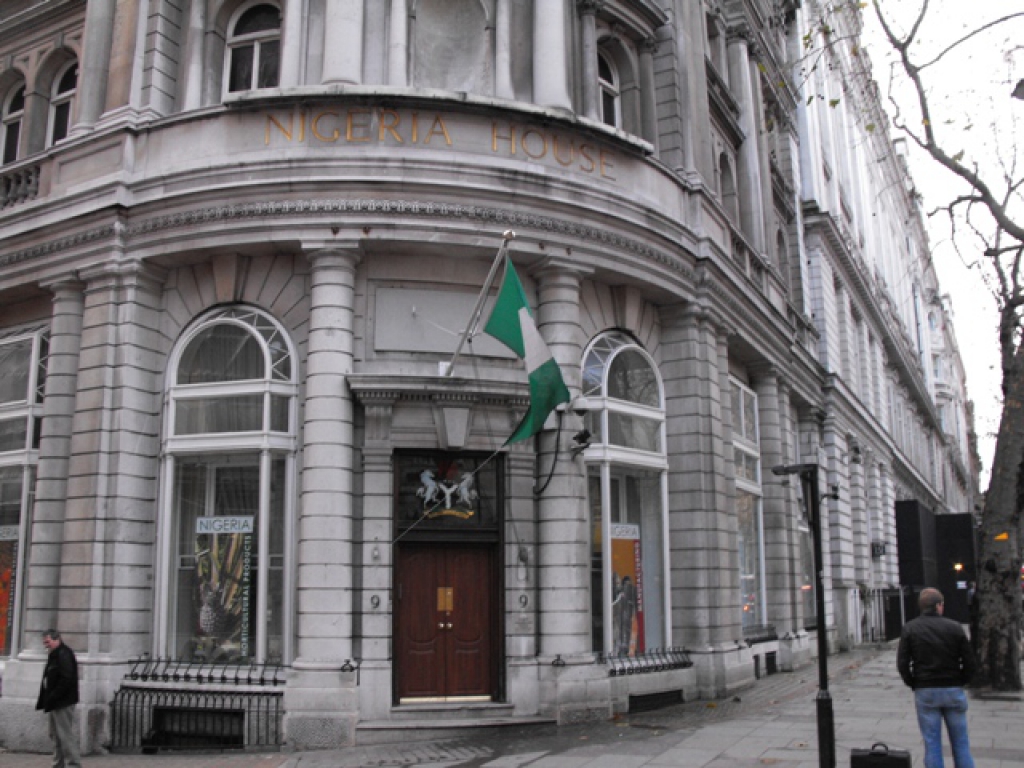Igho Akeregha, the National President of the Civil Liberties Organisation (CLO) is urging President Buhari to urgently address the issues surrounding the activities of the Nigerian embassy in the UK, as well as the 500 individuals who will most likely be on their way to Nigeria soon. Reportedly, 500 Nigerians are set to be conveyed back to the country tomorrow, November 24, following the UK Immigration authorities’ plan to rid their society of illegal citizens, and this is in spite of previous protests held against the Nigerian High Commission by The Commonwealth Liberation Party (TCLP), concerning the fate of Nigerians in the UK facing unjust deportation.
The TCLP’s activities evolved around what they have called a conspiracy between corrupt Nigerian officials in the high commission and UK migration authorities.
Professor Alexia Thomas, Chairman of the TCLP, President of the Independent Diplomat Commission (IDC), and a renowned Nigerian-British activist who has been at the front-line of the war between the aforementioned parties, is reportedly advising the Nigerian government, to revoke the travel certificates that allow for the individuals to be transported, or face legal – and other drastic – consequences. She also wrote a letter to the Deputy Immigration Attache, Mrs C.I. Ngere, accusing her of capital offences including conspiracy, espionage, treason, and aiding and abetting, due to her alleged role in bringing the situation to a head.
According to Thomas, Ngere, with the support her boss, the Chief Immigration Officer, is a recipient of ‘blood money’, in the sum of 3,000 British Pounds per deportee, which materialises in a travel certificate (TC) issued to the UK Border Agency, and has been ongoing for years. She is also suspected luring individuals who were ordinarily minor defaulters of immigration laws into ‘traps’, which set them up to become victims of unfair deportation from the UK annually.
This inability for delegated Nigerian authorities to assume a sufficient level of responsibility in representing their citizens abroad is being highlighted in the ongoing turmoil between the two different representative bodies in the UK. It echoes the controversy on October 30, when over 30 Nigerian students in South Africa arrived at the Nigerian High Commission in Pretoria from Port Elizabeth, to protest their four-month long unpaid stipends, along with visa and passport expiration issues that had not been attended to.
Earlier that month, 29,000 Nigerians were singled out for deportation by the UK government, who dictated they did not have a right to remain in the country. The Nigerian government and Nigerian High Commission were asked to encourage the affected individuals to comply voluntarily, or be forced to do so. Since then, several Nigerians have been arrested in immigration raids, and have also been refused visa extensions.
The alleged questionable activities of the Nigerian High Commission in the UK led to a 72-hour ultimatum from the TCLP on November 17, which threatened to raze the embassy, should the Nigerian government refuse to shut it down, or fail to compel defaulting officials fail to hand in their resignations. The group’s determination led Virgin Atlantic to retract its intention to contribute to the initiative by pulling out as one of the chartered airlines.
Akeregha has called for the Nigerian government to properly address any airlines involved in the transportation of these individuals.
Source: Cynthia Okoroafor , Ventures Africa




